#positive bangladesh
Text
Since pride month is near the end I wanted to say some things to my queer siblings. This is important so please pay attention:
Write and draw YOUR own goddamn story. Corporations only care about profits so they are never gonna give us the proper representation that we deserve and straight people have their own fucking struggles, they don’t have time for us. You can do it professionally or as a hobby but please do it if you have the gift.
Read more books based on leftist theories. It will help you understand why the world is fucked up and how we can fix it.
Join left-wing political groups or parties. Despite what you have been told politics is life. Do you really want others to decide important things for you? Be political.
Donate to left-wing organizations, and join and support your local protest.
Learn to outlive your enemies. Just living a happy life and helping others to better theirs is a revolution, never forget that.
Know that if someone is intolerant to some groups they are also intolerant to others and obviously not your friends.
Remember that you might lose some of your so-called friends when you are trying to be your best and authentic self but you are gonna gain more true friends who will give up their lives to save yours.
We need to show the world that we are not what the reactionaries made us to be. We need visibility and it's our greatest weapon against bigotry, discrimination, and harassment.
Hiding isn’t gonna solve our problem. Running away from fascists is the same as being dead. Stand and fight as much as you can. Happy pride from Bangladesh.
By the way, if you ever come to Bangladesh please meet with me, I would love to host you.
#lgbtqia#lgbtq community#lgbt pride#lesbian#lgbtq#nonbinary#queer#sapphic#nonbinary lesbian#gay girls#bangladesh#dhaka#dhakacity#dhaka university#lgbt#lgbtqa#lgbtq positivity#lgbtq rp#pride#lgbt history#queer community#queer culture#queer characters#queer ns/fw#queer feedee#queerplatonic#queer poetry#coming out#pride month#pride headcanons
77 notes
·
View notes
Text
Chapter 1:
I want to write a story about my life. Not sure where to start. I am an independent woman and I have come so far leaving my past, however, the past thoughts traumatise me and haunts me day and night. That’s why I decided to provide myself with cognitive behaviour therapy to come out of my past feelings or handle them in a positive way. I am just 37, I believe I still need to go a long way. Do you want to know about my past? What makes me cry at night? What kind of thoughts keep me awake? We all have our stories. Don’t we?

A little bit about myself. I am a Muslim woman, well educated, independent, Asian, from Bangladesh, although people say I look like Pakistani or Indian girl, currently living in UK. Life is good, Alhamdulillah. I suffered a lot from my childhood even now. I was pretty badly abused by my mom, physically, emotionally. I don’t think I will be able to forgive her but I want to for the sake of Allah. Anyway, I got to sleep now, as got work tomorrow. Will tell you more by writing about what I went through and where I have come.
#positive mental attitude#mental health#asianwomen#bangladesh#england#independent artist#emotional abuse#children#abuse survivor#self care#self improvement#inspiration#family#self help#trauma
27 notes
·
View notes
Text




#bangladesh#entrupenure#বাংলাদেশ#bussiness#agriculture#economics#success#positive thoughts#im so happy#bd#clothes#casual shirt#brand safety nsf other#my style#fashion#design#artwork#new clothes#team usa#ukrart#alibaba#daraz#ebay.com
10 notes
·
View notes
Text
No matter where you are. No matter who you are as a person. No matter how kind your are to people around you, they will always stereotype you.
The same group of people who shouts "BLM" or "Stop Asian Hate" have no problem with:
Generalising our ethnicity as scammers
Generalising our men as creepy or smelly or rapist etc.
Generalising our women as ugly, disgusting, or smelly etc.
And these are just few examples. All of these steriotypes exist within every race, but only get attributed to our race because they made it socially acceptable to discriminate against us.
Btw, when they said "stop asian hate", they only meant the north east asians.
Also it doesn't help the fact that our people living in other countries will usually tap dance along their stereotyping and bigotry against us.
Maybe its time we realise that these people(white/black/asian/anyone not of our ethnicity) are not your friend. And we can't be friends, we can't get along and sing kumbaya holding hands or whatever, until certain things are fixed/fought against.
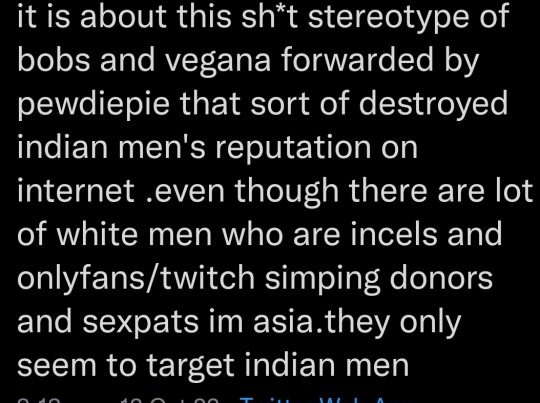
Yes, i said "fixed". Not everything is their fault. There are things we continue to do that that continues to destroy our reputation.
3 notes
·
View notes
Text
ODI Super League: India's first position in danger, know the details of the teams
ODI Super League: India’s first position in danger, know the details of the teams
highlights
At the end of the Super League, the top 8 teams will get direct entry into the World Cup.
ICC ODI World Cup 2023 is to be played in India next year.
New Delhi. India had to face defeat in the first ODI of the 3 match series against Bangladesh. After this defeat, another difficulty has come on Team India. India has been fined 80 per cent of its match fee for maintaining a slow…
View On WordPress
#Cricket News in Hindi#danger#details#Ind vs Ban#ind vs ban 1st odi#India vs Bangladesh#Indias#League#ODI#ODI Super League#ODI Super League points table#ODI world cup#odi world cup 2023#position#super#Team India#team india fine#teams
0 notes
Text
"This decade has been one of the most positive for news about tiger conservation of any since conservation science began in earnest, and a highlight must be this mother tiger and her two cubs sighted in Western Thailand, the first such sighting in more than 10 years of close monitoring.
Tigers are stable or increasing across their entire remaining strongholds, including China, Russia, India, Nepal, Bangladesh, Bhutan, and now Thailand—the only Southeast Asian country to see measurable increases in tiger population over the last 12 years.
There may now be as many as 190 tigers in the country, up from 46 logged in a population survey in 2007.
The sight of the mother and her cubs, in the Salak Phra Wildlife Sanctuary, part of the sprawling Western Forest Complex of Thungyai–Huai Kha Khaeng Wildlife Sanctuaries that stretch across 2,400 square miles, is a sign that Thailand’s conservation efforts are really working; not only are tigers breeding outside of core areas, but that must therefore mean there is enough large game, like sambar deer, to feed them.
“This is a big news for us,” said Rattapan Pattanarangsan, the conservation program manager at the Thai chapter of Panthera, a renowned wildcat conservation NGO. “…now we are the source, we can produce tigers from our place. That means our place is safe enough, and has enough prey for the mothers to eat and breed.”
Neighboring Laos, Cambodia, and Vietnam haven’t been able to make meaningful progress in restoring their tigers, and if they ever needed a few individual animals, Thailand now has a stable, growing population that is adapted to similar forest conditions.
Pattanarangsan told The Guardian that creative efforts to stop poachers, such as by working together with ranchers to place early warning cameras on forest trails have worked significantly.
Reductions in commercial bamboo harvesting have also reduced human-tiger conflict, and the animals look poised to continue flourishing in the western rainforests of the country."
-via Good News Network, January 8, 2024
#tiger#tigers#wildlife#conservation#endangered species#thailand#thai#poachers#big cats#good news#hope#hope posting#baby animals#tiger cub
853 notes
·
View notes
Text
In addition to my Monkey Man post from earlier, the always kind & sweet Aparna Verma (author of The Phoenix King, check it out) asked that I do a thread on Hijras, & more of the history around them, South Asia, mythology (because that's my thing), & the positive inclusion of them in Monkey Man which I brought up in my gushing review.
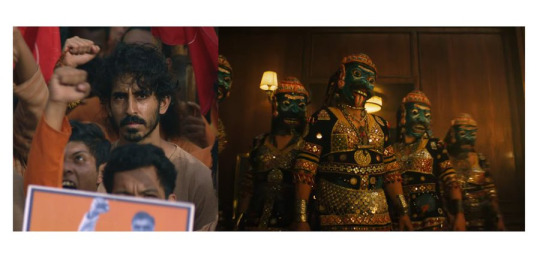
Hijra: They are the transgender, eunuch, or intersex people in India who are officially recognized as the third sex throughout most countries in the Indian subcontinent. The trans community and history in India goes back a long way as being documented and officially recognized - far back as 12th century under the Delhi Sultanate in government records, and further back in our stories in Hinduism. The word itself is a Hindi word that's been roughly translated into English as "eunuch" commonly but it's not exactly accurate.
Hijras have been considered the third sex back in our ancient stories, and by 2014 got official recognition to identify as the third gender (neither male or female) legally. Pakistan, Nepal, Bangladesh, and India have accepted: eunuch, trans, intersex people & granted them the proper identification options on passports and other government official documents.
But let's get into some of the history surrounding the Hijra community (which for the longest time has been nomadic, and a part of India's long, rich, and sometimes, sadly, troubled history of nomadic tribes/people who have suffered a lot over the ages. Hijras and intersex people are mentioned as far back as in the Kama Sutra, as well as in the early writings of Manu Smriti in the 1st century CE (Common Era), specifically said that a third sex can exist if possessing equal male and female seed.
This concept of balancing male/female energies, seed, and halves is seen in two places in South Asian mythos/culture and connected to the Hijra history.
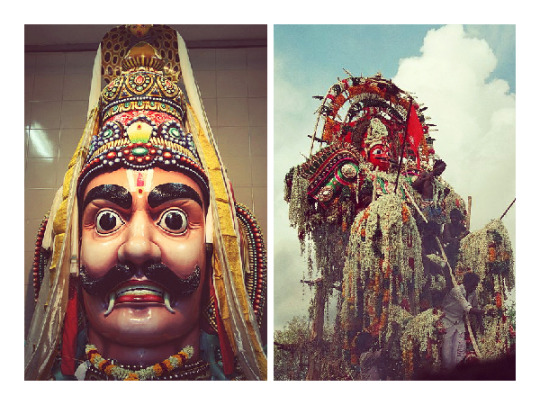
First, we have Aravan/Iravan (romanized) - who is also the patron deity of the transgender community. He is most commonly seen as a minor/village deity and is depicted in the Indian epic Mahabharata. Aravan is portrayed as having a heroic in the story and his self-sacrifice to the goddess Kali earns him a boon.
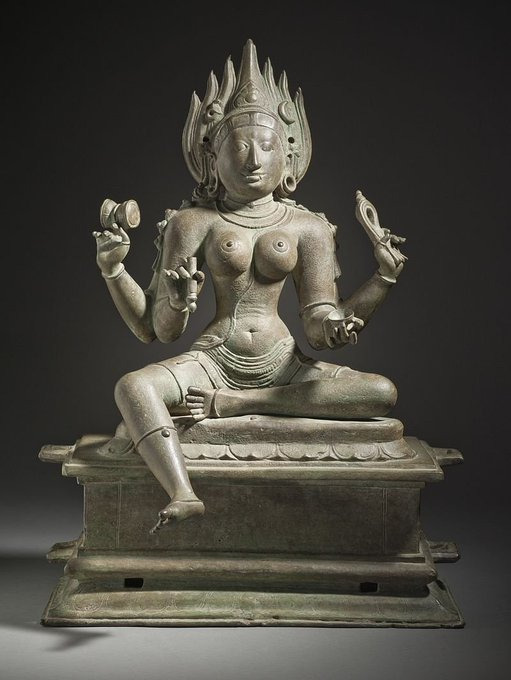
He requests to be married before his death. But because he is doomed to die so shortly after marriage, no one wants to marry him.
No one except Krishna, who adopts his female form Mohini (one of the legendary temptresses in mythology I've written about before) and marries him. It is through this union of male, and male presenting as female in the female form of Mohini that the seed of the Hijras is said to begun, and why the transgender community often worships Aravan and, another name for the community is Aravani - of/from Aravan.
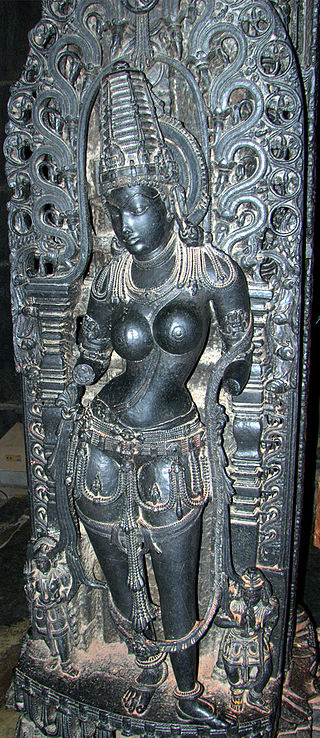
But that's not the only place where a gender non conforming divine representation can be seen. Ardhanarishvara is the half female form of lord Shiva, the destroyer god.
Shiva combines with his consort Parvarti and creates a form that represents the balancing/union between male/female energies and physically as a perfectly split down the middle half-male half-female being. This duality in nature has long been part of South Asian culture, spiritual and philosophical beliefs, and it must be noted the sexuality/gender has often been displayed as fluid in South Asian epics and the stories. It's nothing new.

Many celestial or cosmic level beings have expressed this, and defied modern western limiting beliefs on the ideas of these themes/possibilities/forms of existence.
Ardhanarishvara signifies "totality that lies beyond duality", "bi-unity of male and female in God" and "the bisexuality and therefore the non-duality" of the Supreme Being.
Back to the Hijra community.
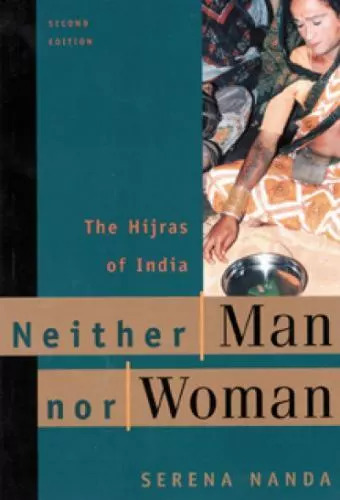
They have a complex and long history. Throughout time, and as commented on in the movie, Monkey Man, the Hijra community has faced ostracization, but also been incorporated into mainstream society there. During the time of the Dehli Sultanate and then later the Mughal Empire, Hijras actually served in the military and as military commanders in some records, they were also servants for wealthy households, manual laborers, political guardians, and it was seen as wise to put women under the protection of Hijras -- they often specifically served as the bodyguards and overseers of harems. A princess might be appointed a Hijra warrior to guard her.
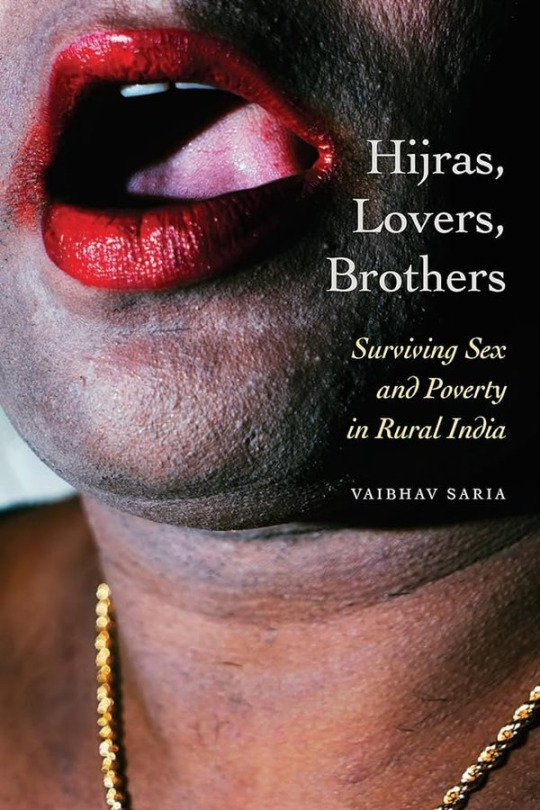
But by the time of British colonialism, anti-Hijra laws began to come in place folded into laws against the many nomadic tribes of India (also shown in part in Monkey Man with Kid (portrayed by Dev Patel) and his family, who are possibly
one of those nomadic tribes that participated in early theater - sadly by caste often treated horribly and relegated to only the performing arts to make money (this is a guess based on the village play they were performing as no other details were given about his family).
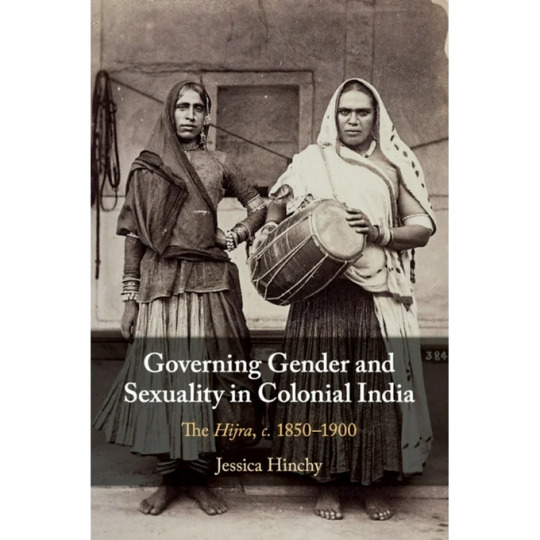
Hijras were criminalized in 1861 by the Indian Penal Code enforced by the British and were labeled specifically as "The Hijra Problem" -- leading to an anti-Hijra campaign across the subcontinent with following laws being enacted: punishing the practices of the Hijra community, and outlawing castration (something many Hijra did to themselves). Though, it should be noted many of the laws were rarely enforced by local Indian officials/officers. But, the British made a point to further the laws against them by later adding the Criminal Tribes Act in 1871, which targeted the Hijra community along with the other nomadic Indian tribes - it subjected them to registration, tracking/monitoring, stripping them of children, and their ability to sequester themselves in their nomadic lifestyle away from the British Colonial Rule.
Today, things have changed and Hijras are being seen once again in a more positive light (though not always and this is something Monkey Man balances by what's happened to the community in a few scenes, and the heroic return/scene with Dev and his warriors). All-hijra communities exist and sort of mirror the western concept of "found families" where they are safe haven/welcoming place trans folks and those identifying as intersex.
These communities also have their own secret language known as Hijra Farsi, which is loosely based on Hindi, but consists of a unique vocabulary of at least 1,000 words.
As noted above, in 2014, the trans community received more legal rights.
Specifically: In April 2014, Justice K. S. Radhakrishnan declared transgender to be the third gender in Indian law in National Legal Services Authority v. Union of India.
Hijras, Eunuchs, apart from binary gender, be treated as "third gender" for the purpose of safeguarding their rights under Part III of our Constitution and the laws made by the Parliament and the State Legislature. Transgender persons' right to decide their self-identified gender is also upheld and the Centre and State Governments are directed to grant legal recognition of their gender identity such as male, female or as third gender.
I've included some screenshots of (some, not all, and certainly not the only/definitive reads) books people can check out about SOME of the history. Not all again. This goes back ages and even our celestial beings/creatures have/do display gender non conforming ways.
There are also films that touch on Hijra history and life. But in regards to Monkey Man, which is what started this thread particularly and being asked to comment - it is a film that positively portrayed India's third sex and normalized it in its depiction. Kid the protagonist encounters a found family of Hijras at one point in the story (no spoilers for plot) and his interactions/acceptance, living with them is just normal. There's no explaining, justifying, anything to/for the audience. It simply is. And, it's a beautiful arc of the story of Kid finding himself in their care/company.
#hijra#trans representation#monkey man#dev patel#transgender#trans rights#trans rights are human rights#third sex#indian history#indian culture#colonialism#imperialism#south Asian mythos#South Asian myths#Aravan#Iravan#Mahabharata#hindu mythology#hindu gods#kali goddess#krishna#hindu mythology art#Ardhanarishvara#Shiva#Parvarti#sexuality#gender fluid#fluid sexuality#trans community#transgender rights
472 notes
·
View notes
Text
that one line about ramy's bangla being rudimentary made me absolutely sob (i'm bengali) and i wanna talk about why
there's so much to it both contextually with ramy's character as well as historically. contextually because ramy is fluent in 6 languages, an insane number of languages for one person but none of which are his mother tongue. he's described as a performer, one who knows he can't blend in so instead he stands out as a means to escape as much of the racism as he can. he gets lost in it that he almost forgets who he is; this is reflected in his language ability too – he gets so lost in his linguistic academics he just barely remembers the native language of his home place that he adores.
and honestly, you can't even really blame ramy for it at all when it was induced. it's the british who saw urdu, arabic and persian as more valuable than bangla, it's the british that make ramy put on this act so he can literally stay alive. and when you know the historical relevancies between urdu and bangla, it hurts so much that ramy was forced to forget bangla
very brief history context: after the partition, where british india was split into india, pakistan and east pakistan (now bangladesh) bangla was seen as inferior to urdu due to its hindu connections. bengalis experienced so much shit because of this (and bengali muslims are still dealing with the internalised cultural racism today honestly). pakistanis tried to make the official language urdu, even though literally everyone in east pakistan were bengali and spoke bangla, so bengalis fought back against it. we still celebrate that day today (feb 21)
so to have ramy be in this position in the 1830s where urdu was seen as superior to bangla, especially when ramy is a bengali muslim, is just extremely accurate?? and maybe it's bc we don't have much western literature where we talk about this but it's just so nice to have it acknowledged
the bangla language movement didn't happen until around the 1950s, over a century after babel's timeline, but the seeds are always there. while i do think it comes with both this islamic superiority tendency a lot of asians have (arabs i'm looking at you) and britian's imperialistic racism, i just love how it all makes sense
#babel rf kuang#ramiz rafi mirza#i'm still learning a lot abt my own culture so don't ask me for a lot of information about this lol#yk when i found out ramy was bengali it set my world off its course and i knew i had to read this book even if no bangla was discussed#i knew i was gonna get attached to him and I DID!#he just means so much to me and while he made me sob multiple times i love what kuang did with his character#also if youre pakistani lol don't try to defend yourself#you don't get to after pakistanis massacred so many bengalis during the bangladesh liberation war#babel an arcane history#babel or the necessity of violence#also i love seeing south asian characters become fandom favourites i know most babel lovers love ramy IKTRRR
136 notes
·
View notes
Text
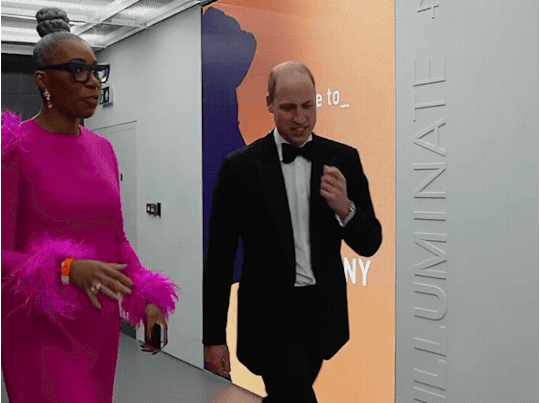



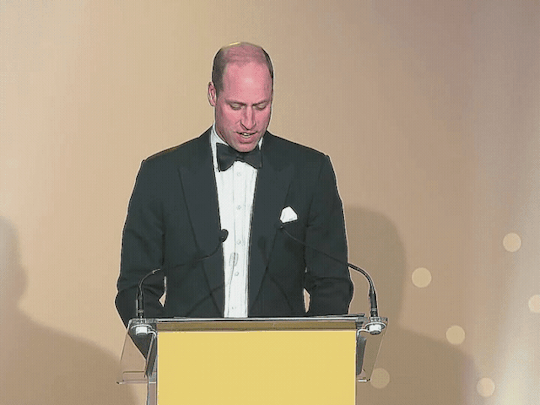
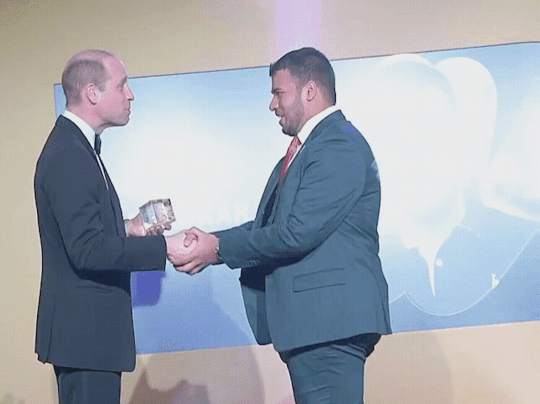


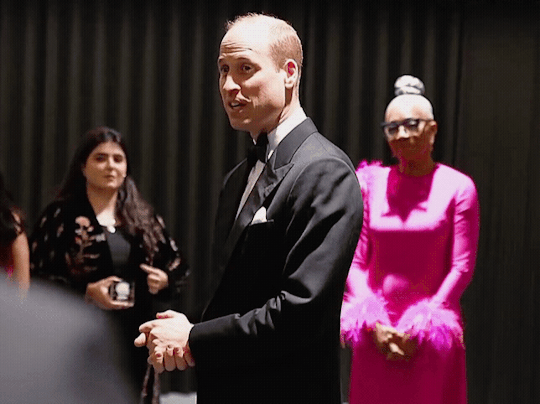
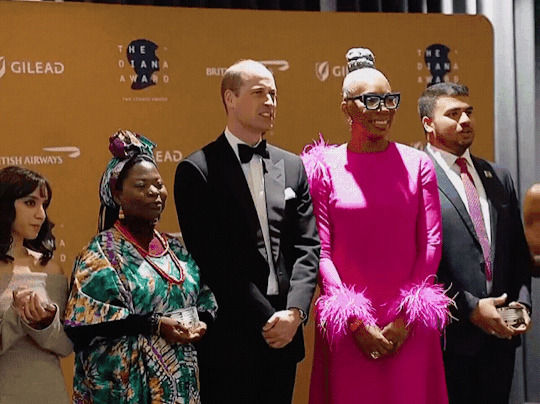
PRINCE OF WALES DIARIES ♔
14 MARCH 2024 || THE DIANA LEGACY AWARDS
The Prince of Wales attended the Diana Legacy Awards on Thursday 14th March at the Science Museum in London.
Upon arrival he met key staff and supporters of the Diana Award, before joining the ceremony where he heard about the recipients' work. He made a short speech giving tribute to his late mother and presented the Legacy Awards to this year's winners.
Following the ceremony, he met and spoke to all the award winners who have travelled from around the world, representing countries including Australia, Bangladesh, the Cayman Islands, India, Indonesia among others.
The Diana Legacy Awards take place every two years and celebrate the achievements of 20 exceptional young leaders who are inspiring the next generation to follow in Diana, Princess of Wales' footsteps and make a positive difference to the world.
This year's event marked the 25th Anniversary of The Diana Award.
#british royal family#british royals#brf#royalty#royals#royal#british royalty#prince of wales diaries#prince of wales diaries 2024#prince william#the prince of wales#william prince of wales#william wales.#prince of wales#royaltyedit#royalty edit#royaltygifs#royalty gifs#14032024#DianaAwards24
53 notes
·
View notes
Text
Okay so I'm gonna go ahead and put a disclaimer up top that these are the ramblings of a dilettante that shouldn't be taken too seriously, but I think that people (understandably) frustrated with with the ICJ ruling and convinced it will have no material consequences should consider some things before they say that.
The first thing I want to remind everyone is that the west is far from invincible. Their rule is not iron-clad and their ability to enforce their will on the world is far from complete and is waning apace.
I think a lot about how in the process of the transition to late capitalism (as I personally define it), one consequence of the mass financialization of the economy is the pricing-out of most common consumer commodity-based manufacturing enterprise in favor of transactions that are most elastic in price, and how the result of that is a mass outflow of raw productive capacity from the imperial core to the global periphery.
If I can frame that in another way, and forgive me in framing this in very neutral terms, but it turns these countries from production-rich countries to production-poor countries with economies defined by the phenomenon of asset-price inflation.
The resulting global situation is that, similar to the assertion that Africa for example is rich because it's where the natural resources that facilitate the global economy are located, Mexico is rich. Vietnam is rich. Bangladesh is rich. These countries are awash in raw capacity to create goods that have a use value. What is the one thing that keeps them relatively cash-poor?
That is, the law. There's a bit of poetry in the idea that just as how within imperial core economies the most important economic instruments are legal contracts to either some percentage of a company's equity or its debt, what sustains its (nominal) riches over the global periphery is a legal regime of ownership that entitles them to the rights to all of the profits going on in these incredibly production-rich countries in the Global South.
It is absolutely correct to say that at the highest level, these legal regimes are enforced at the barrel of the gun, we've seen how too much refusal to to honor these laws by heads of state can lead to mass disinvestment and eventually coups d'état, and even now it would not be a good idea to say, seize the productive assets of a bunch of US firms.
However, and this is where the ICJ comes back in to my point, let's not think about the US. Let's think about, for example, the Netherlands or Belgium. These countries maintain fantastic financial wealth via contracts of ownership with countries in the global south but they are also small and geopolitically unimportant, with little in the way of individual military power.
For little countries like these, genuinely the Only thing that secures their ability to act as a parasite on the global productive economy is the strength of legitimacy that international law affords them, and the position of overwhelming power the west Once had, decades ago.
But the power and prestige of the West continues, as I said, to wane apace. it's too early to happen now but these less militaristic countries are aware of how exposed their assets are to simple seizure if over time international law comes to be seen as a joke.
As awful and condamnable as the current global system is, it is not total dictatorship. It is only able to perpetuate itself because the overwhelming majority of countries that are parties to it have buy in and because, albeit much more slowly than they could have under socialism, they have been able to make dents in their own poverty with it.
The exposure of the international law framework as having absolutely no legitimacy, as being a naked tool of domination of rich countries over poor countries has knock-on effects that stand to be incredibly dangerous to less militarily capable countries that rely on them for their economic structures. On a long-term scale, especially as these countries become richer and more geopolitically influential in their own right, they may well begin to pose the question: why Shouldn't I seize these french factories in my country? Why Shouldn't I seize this Belgian-owned diamond mine? Why Should I pay back this IMF loan, if the ICJ framework can't even compel the Zionist Enemy to end a genocide? And I promise you, this is a reality of which at least some people in those countries are highly cognizant and wary, so I'd wait and see a bit before being Too pessimistic.
40 notes
·
View notes
Text
Some of the organizations that work to support the LGBT community in Bangladesh include:
Bandhu Social Welfare Society: Bandhu is a leading organization that works to support the health and well-being of the LGBT community in Bangladesh. It provides a range of services, including counseling, legal support, and health services, and it works to raise awareness about LGBT rights and issues.
Roopbaan: Roopbaan is Bangladesh's first and only LGBT magazine, and it is a leading voice for the LGBT community in the country. It provides a platform for LGBT individuals to share their experiences and to raise awareness about LGBT rights and issues.
BOOM: BOOM is a youth-led organization that works to support the rights and well-being of the LGBT community in Bangladesh. It provides a range of services, including counseling, legal support, and health services, and it works to raise awareness about LGBT rights and issues.
The Bangladesh Society for the Enforcement of Human Rights (BSEHR): BSEHR is a human rights organization that works to support the rights of marginalized communities in Bangladesh, including the LGBT community. It provides legal support and advocacy for LGBT individuals, and it works to raise awareness about LGBT rights and issues.
The Rainbow Alliance of Bangladesh (RAB): RAB is a coalition of LGBT organizations in Bangladesh that works to promote LGBT rights and to raise awareness about LGBT issues. It provides support and advocacy for the LGBT community, and it works to build a network of allies and supporters.
The Bangladesh Krishok Federation (BKF): BKF is a farmer's organization that works to support the rights and well-being of marginalized communities in Bangladesh, including the LGBT community. It provides a range of services, including counseling, legal support, and health services, and it works to raise awareness about LGBT rights and issues
The Bangladesh Transgender Network (BTN): BTN is a network of transgender individuals and organizations in Bangladesh that works to promote transgender rights and to raise awareness about transgender issues. It provides support and advocacy for the transgender community, and it works to build a network of allies and supporters.
The Bangladesh Jatri: Bangladesh Jatri is an organization that works to support the rights and well-being of the hijra community in Bangladesh. Hijra is a term used in South Asia to refer to individuals who are assigned male at birth but who identify as female or as having a non-binary gender identity. Bangladesh Jatri provides support and advocacy for the hijra community, and it works to raise awareness about hijra rights and issues.
The Bangladesh Sexual and Gender Minorities Network (SAGE): SAGE is a network of organizations and individuals in Bangladesh that work to support the rights and well-being of sexual and gender minorities. It provides a range of services, including counseling, legal support, and health services, and it works to raise awareness about LGBT rights and issues.
#lgbtq#lgbt pride#lgbtqa#lgbtqplus#asian lgbtq dramas#queer#lgbtqia#lgbtq positivity#lgbtlove#lesbian#lgbt#bangladesh#dhaka#lgbt activism#queer representation#queer artwork#queer artist#queer pride#gender queer#queer community#queer culture#non binary
48 notes
·
View notes
Text






#bangladesh#বাংলাদেশ#agriculture#entrupenure#success#bussiness#positive thoughts#economics#im so happy#bd
2 notes
·
View notes
Text
"Education is not just facts and numbers; it empowers you to shape your own future. Research shows that education for women is a powerful catalyst for positive change, promoting gender equality and improving health. It also contributes to the overall development and well-being of families, communities, and societies. Recognising and investing in the education of women is in other words crucial for building a more sustainable world."
-An excerpt from Crown Princess Victoria's speech as she opened a classroom named in her honour at Bangladesh's Asian University for Women, 19th March 2024
27 notes
·
View notes
Text
The biggest heist that almost was
Let me tell you about the most insane bank heist that is going to sound like I'm just leaking the script for the next American hacking movie. The goal? Steal one billion USD. And it all began with an email and a printer, which as we all know is where problems usually start. Another weapon in this heist was... Weekends and time zones.
As usual, no prior computer science education needed.
What happened?
On the morning of February 5th 2016, a printer had stopped working in the central bank of Bangladesh (Bangladesh Bank). But it wasn't just any printer, it was the printer responsible for printing all the records of the multimillion transfers going in and out of the bank. When the poor employees finally won the printer battle and had it resume normal operation, they saw a very concerning account transfer in the records that was coming out. The bank had an USD account in the USA, at Federal Reserve Bank, with approximately 1 billlion Dollars in it, and the Federal Reserve Bank had received instructions to drain almost the entire amount. In the records that came out in the printer, the American bank had attempted to urgently message the Bangladesh bank regarding this transfer, but couldn't get through to them. This was because the hack had actually started the day before, Thursday 4th, at around 20:00 Bangladesh time, when the bank was closed. However, USA had just started their day, giving the American bank plenty of time to follow through with the instructions from the Bangladesh bank to drain their entire account while they were closed. And that wasn't the end of it, as weekends are from Friday to Saturday in Bangladesh, meaning that the Bangladesh bank headquarters in Dhaka wouldn't discover this withdrawal until Sunday morning. That's when they immediately tried to reach the American bank, which of course didn't work as over there it was Saturday evening, and the American weekend is from Saturday to Sunday, meaning that they wouldn't be reachable until Monday.
You see what I mean by the hackers using time zones and weekends, finding the perfect time for the American bank to execute their orders while Bangladesh discovers the withdrawal several days too late, and again several days too late for Americans to be reachable. But it didn't stop there with their timehacking.
The money had to go somewhere from the American bank, and it would be stupid to send it directly to the hackers own account without laundering the money first. So they had set up four different bank accounts in the Philippines, using fake names and credentials. Why the Philippines? Because the Lunar new year was on Monday the 8th, which is a holiday and holiday means no bank activities in either Bangladesh or the Philippines, buying the hackers even more time. As a final act, they messed with the printer responsible for printing transaction records, adding another few hours to their schedule. Moon and stars really aligned perfectly for this plan.
But how did they do it?
It all began one year prior, in January 2015, with an email sent to several employees at the Bangladesh Bank. The email seemingly contained a job application from a person who didn't actually exist, but who was very polite in his request for a position at the bank, with a link to his CV and cover letter. Naturally this link led to a document with a little surprise gift - malware. Since the heist happened, at least one of the recipients must have clicked the link, and successfully deployed a RAT - Remote Access Trojan, malware that lets you control a computer from the comfort of your own home, as well as a toolkit with various malware to move from computer to computer, avoiding discovery, and covering their tracks.
From there, the hackers slowly made their way through the bank offices network, one step at a time to avoid setting off alarms, looking for any computer that had control of the banks SWIFT setup. SWIFT lets banks transfer large amounts of money between themselves and other banks connected to SWIFT. And as soon as they found one of those computers, they stopped. They didn't need to hack SWIFT in the traditional sense of the word - since they operated in a bank computer, the SWIFT-software assumed they naturally had to be bank employees. However, one of the parts of the malware used in the heist was for manipulating the SWIFT system, as the hackers weren't physically there to press anything. Additionally, since they were laying dormant for the time to strike, they needed to keep an eye out for SWIFT updates that could detect any tampering with the system, and adapt accordingly.
Then they waited many months for the stars to align on February 4th, 2016.
There were 35 transfers made by the hackers from the American bank account, totaling almost 1 billion USD, but there were two of these tiny little seemingly insignificant details that prevented this from becoming the worlds largest bank heist in history. The hackers biggest enemy became this concept known as “words”.
The Philippine bank accounts were all located in the same RCBC Bank office on Jupiter Street in Manila. And this would be the hackers downfall, as USA had sanctions put on an Iranian cargo ship called Jupiter. Since the transactions went to a recipient that contained the word “Jupiter”, it created a security alert in the Federal Reserve Bank that the employees needed to investigate. When they saw what was going on, they managed to stop all but five of the initial 35 transactions, thus “only” roughly 100 million USD made it to the Philippines. The Bangladesh bank requested to reverse the transactions, but since the money was in the Philippines, they would need bureaucracy in form of a court order to reclaim the money, and we all know that's not a 5 minute project. It was when Bangladesh filed the court order in late February that the case became public (since court orders are public documents) and the news broke to the country.
Once in the RCBC bank accounts, the money arrived on Friday the 5th and was immediately moved again. First the 100 million was converted to local currency, and some of it was withdrawn in cash, while the rest was sent off to other hacker-controlled locations. And this is where the second tiny little detail cut off even more of the hackers precious payday. 20 million USD had been sent to Shalika Foundation, a charity organisation in Sri Lanka. But, once again the hackers worst enemy - words - decided to strike again. A typo was made in their transaction, sending the money to “Shalika Fundation”, and a bank employee who must have had their morning coffee spotted this typo and rejected the transfer and kept the funds frozen. This left the hackers with 80 million USD.
✨Now comes the money laundering!✨
There was a second reason for choosing the Philippines as deposit zone; gambling is legal and the casinos had no money laundering regulations imposed. The accomplices of the heist booked private rooms in two casinos located in Manila - Solaire and Midas - and proceeded to purchase tokens to gamble for with the stolen money. Since they played with a room consisting of their fellow accomplices, winning was not really much of a challenge. Then the tokens could be exchanged back to money that would now be clean. To avoid suspicion, they didn't gamble all of the money at once, but over the course of several weeks gambled away the dirty money to clean money.
Who was behind it?
It's normally difficult to pinpoint where the more sophisticated hacking groups come from. Oftentimes, they will leave false clues behind that points to another group so they will face more trouble instead of the group that did it. They may even place clues from several different groups, just to mess with the analysts. It's also quite common to simply “steal” a way of working from another group, or use a leaked/stolen tool from another group (criminals aren't safe from other criminals, especially not in this business) - there are new malware coming out all the time with code that is just a slight modification of a well-known malware actor that had their source code leaked or simply had hired the same programmer. Or they may leave no clues as to who was behind it. Attribution to the guilty part is usually the single most difficult mission in IT-security - often it's just pure guesswork with little to no solid evidence to back it up, if you're lucky there's circumstantial evidence.
This case was no different. The first clue came from the IP the bad guys used to connect to the Bangladesh bank from. It was located in Pyongyang, North Korea. But, as I mentioned, this is not a conclusive verdict, as the IP may simply be planted false evidence to throw the analysts off their track. After the heist, the hackers used a data-wiper to scrub as much of their malware off the bank systems, but they didn't succeed in deleting all of it, some of the tools were still present, including the wiper.
Due to the scale of this operation, it caught the attention of every single IT-security person and IT-security company worldwide, who all of course wanted to know who and how they did it. With the remaining malware, a joint effort was made, comparing malware code to other malware code for similarities. Some was found in Poland, after an analyst noted the similarities from another suspected North Korean hack. Some was found in another infamous North Korean hack targeting Sony Pictures. More and more signs pointed towards the same actor. Some were false leads, the hackers seemed to be wanting to implicate the Russians did it, but failed quite miserably at that, just sprinkling random Russian words into the malware and making it way too obvious it was a ruse.
You may not believe this, but the North Korean government has one of the most notorious hacking groups in the world, known as the Lazarus Group. Some of its more well-known adventures include an extremely data-destructive hack of Sony Pictures (as punishment for releasing “The Interview”), creation of the ransomware WannaCry which was used against many targets worldwide (including hospitals), and various attempts at gathering information from governments and government-affiliated corporations all over the world. And, of course, this heist.
Eventually, after months of collaboration all over the world, the final verdict fell on North Korea, and specifically one of their programmers. His name is Park Jin Hyok, and worked for Chosun Expo - a front company for the North Korean government, located in Dalian (China) who used the funds of the fake corporation gained from legitimate programming jobs from customers worldwide to create the malware and plan the heist with all of its expenses. Of course he wasn't the sole person involved in this project, but it's the only person we know was in it.
This particular heist had been meticulously planned for several years, and Park Jin Hyok had moved to Dalian, set up fake IDs and built a network of contacts there to avoid suspicion. However, he didn't manage to delete all of his online footprints, and became the number one suspect when his internet activities suddenly came from Pyongyang, North Korea.
Additionally, several Chinese business men - many associated with the casino industry in China's Macau territory - were also charged and arrested for assisting with setting up the gambling rooms and coordinating the money laundering process. One unknown Chinese business man managed to get away with 31 million USD of the 80 million that remained after the heist, and as you would expect, he was never to be seen again.
With the middlemen from China paid off, not much remained of the original 1 billion to North Korea. But the heist has fascinated the whole IT-security world nonetheless.
I remember when the news of this case dropped to the IT-security world, who all wanted to take part in the hunt. It was a very fun time, we were all sitting at the edge of our seats waiting for the next update. I hope it was at least somewhat exciting for you too to read about, and thank you for reading this long post! If you liked it, please consider reblogging as it motivates me to write more. You may also like malware stuff I've written about before, such as Stuxnet or just plain evil malware that is a threat to our daily lives.
As always my inbox is open if you have any questions.
77 notes
·
View notes
Note
So I was googling Gal Gadot because I was curios if she is in anything upcoming or what not, turns out she just had a baby, mazal tov to her and her family.
and there was a tik tok about her and one of the comments was something like didn't go where I expected so I thought oh maybe this is something positive about her
it was not, it really wasn't. and it is just so upsetting because I then when and looked at when this comedian did this set bc the tiktok was clip of this set and it was from april 2024 so it is after Oct 7th.
and I found the full and the full clip is even worse. and like I need to share this because it is so gross and antisemitic.
I do hope you will forgive me for sharing this disgusting antisemitic screed.
https://www.youtube.com/watch?v=3h6Rx7pWQKE
But I just need to not feel crazy and alone in finding this revolting.
WOWWW! This video is a little microcosm of modern day Jew-hate.
So get this! This little whiny ass bitch from Australia, who benefitted from growing up in Australia, is turning around and taking the GUILT he feels for having benefitted from living in an ACTUAL racist country that ACTUALLY genocided their indigenous population — and he's dumping that GUILT he feels onto Jews.
This whiny ass bitch actually has the fucking AUDACITY to call Jews the "Master Race."
This little BITCH has the fucking gall to call the Jews of Israel "white colonizers."
This just proves that he is slandering an entire country without even looking at pictures of the people of that country. Because nearly 70% of the Jews in Israel are from MENA countries. Jews are not white, but most of the Jews in Israel are not even "white passing."
This dude grew up on STOLEN LAND in Australia, and yet he's accusing the indigenous Jewish population of Israel, who came to Israel as refugees when they were ethnically cleansed by Muslims in MENA countries -- he's accusing these Middle Eastern Jews of being "white colonizers."
But I know what this dude is up to. He let his mask slip halfway through his set.
He said: "Australia is a fictional country."
This dude is a Muslim of Bangladeshi descent, who was born in Saudi Arabia, and he grew up living between Bangladesh, Saudi Arabia, Oman, and Australia.
But from the age of 13 on, he lived in the suburbs of Melbourne, and that's where he grew up. He's an Australian.
And this little shit feels GUILTY about that.
And so what does he do with that guilt? Does he lay the blame on white people in Australia? Oh, no. That would be WAY too risky. He would be putting himself in danger there.
No. He does what every whiny bitch from Hadrian to Hitler has done.
He blames the Jews.
He LIES and calls the Jews the "Master Race."
He LIES and says that Jews are responsible for every societal evil.
All because he feels guilty for benefitting from growing up in the Melbourne suburbs. All because he feels guilty for growing up in the "fictional country" of Australia.
And that's not even touching on the question: Why does Bangladesh have a Muslim majority population?? Bangladesh is a country that used to be part of India, whose indigenous population are Hindu.
This dude didn't even TOUCH on Arab Muslim conquest and colonization in India, and in Middle Eastern and North African (MENA) countries.
I see right through him. I see what he's doing.
And I see through all of you bigots who use the rhetoric that this dude used in his set.
WE JEWS WILL NOT BE YOUR FUCKING DUMPING GROUND FOR YOUR GUILT.
You whiny bitches need to OWN your guilt. You need to OWN your shame.
If you grew up in Australia, the US, Canada, or anywhere else that genocided your indigenous populations, you need to sit and process that.
Stop using Jews as your fucking trash can for your guilt, you disgusting bigots.
We Jews are NOT your scapegoats.
15 notes
·
View notes
Text
A Test for Us? Or for Our Society?
I have been researching the worldwide history of gender non-conforming, third gender and other identities/roles that do not conform to the typical binary expectations of their society. Although each comes with their own unique languages, attitudes and traditions, I feel a kinship and long to know more about them.
Historically, some societies have permitted (or even honored) us and others have rejected (or even killed) us. And my research turned up a result I did not expect. I went in looking for social mechanisms that work in finding a place for us, but I found something that surprised me entirely (maybe it shouldn't have). Here's a partial list of societies that permitted and rejected us. Consider which of these societies you would want to be part of:
Permitted us: Pre-colonial culture in the Phillipines. Asog/Bayok served as shaman alongside women.
Rejected us: The Spanish inquisition in the Phillipines. They cast the women out of spiritual rules and killed the Asog/Bayok.
Permitted us: Pre-colonial India, Nepal, Bangladesh, Pakistan
Rejected us: The Raj (British colonial government of above) and other colonial powers.
Permitted us: Weimar Republic (Germany 1919-1933)
Rejected us: Nazi Germany
There are definitely nuances in the above list. For example, the Weimar Republic may be characterized as relatively permissive and the Nazi regime as actively hostile. But the dichotomy of these two (and the others) existing side-by-side is just difficult to overlook. And as the list grew, I found that there were no societies deeply intolerant of LGBT people that I would want to be identified with, even without considering their position on LGBT rights.
#I am fascinated at how often we take on spiritual roles in our communities#and how often#we (on the MtF side of things)#are considered positively#in fertility rituals#weddings#births and funerals#and similar roles
8 notes
·
View notes